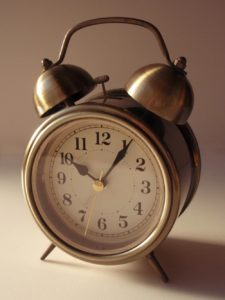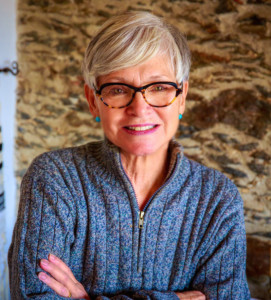The Month of Preparation
On the secular calendar it’s nearly the end of August while on the Hebrew calendar a new month has begun. It’s the Hebrew month Elul, the only month that does not feature a holiday, a feast day, a fast day or a memorial. And that’s no coincidence. Our sages understood that we Jews need time to prepare spiritually for Rosh HaShanah, the new year, when we are asked to make our apologies and amends and to accept, with a forgiving spirit, apologies made to us.
So now, what do you do during Elul? Below you will find 29 the FACTS, TIPS and ACTIONS to help you prepare your head and heart to receive the blessings and joys of Hebrew year 5780.
1. The Hebrew month Elul begins this year at sundown, Wednesday, August 16, 2023.
2. Elul is the only one of the Hebrew months where there are no festivals, memorial days, fast days or days of simcha.
3. Elul is the month of preparation. In fact the name Elul originates from the Babylonian period. In Aramaic it means, “to search.”
4. Thus, Elul is the month for Jews to search their souls.
5. The word, Elul (Hebrew letters “alef, lamed, vav, lamed”) is thought to be an acronym of “Ani l’dodi v’dodi li,” which translates to “I am my Beloved’s and my Beloved is mine.” (Song of Songs Chapter 6: 3)
6. he “beloved” is believed to be the “One God,” and the “I” represents the people of Israel.
7. The word, “Elul” first appears in the Hebrew Bible in the book of Nechemiah (chapter 6 verse 15)
8. During the month of Elul it is traditional to sound the shofar each weekday morning
 9. The shofar serves as a spiritual “alarm clock,” to remind us to take time each day to examine our behavior, ask for forgiveness and prepare to change.
9. The shofar serves as a spiritual “alarm clock,” to remind us to take time each day to examine our behavior, ask for forgiveness and prepare to change.
10. Our great sage and teacher, Maimonides (Rambam) taught us in Hilchot Teshuvah about the symbolic meaning of the sound of the shofar:
11. “Awake all of your who are asleep. Search your ways and mend them in repentance.”
12. The shofar, or ram’s horn, that is sounded during Elul and for Rosh HaShanah and Yom Kippur, is the oldest musical instrument in continuous use in the world.
13. The person who sounds the shofar is called “Ba’al Tekiah” or (in the feminine) “Ba’alat Tekiah,” which means “master of the sound.”
14. The shofar can be made from the horn of any kosher animal.
15. Around the world the horns of the ram, goat, antelope, sheep, gazelle, ibex and kudu can be used to make a shofar.
16. The horns of cows, calves or oxen to do not qualify as shofarot because they are connected with false worship in the time of Moses while the horns of oxen are called “keren,” and technically are not “shofarot.”
17. The original Sephardic shofar is straight with no curves while the typical Askkenazi shofar is curled or bent. In Poland the rabbis taught that this bending symbolizes the human heart, which should be bent before the Lord on that day.
18. The shofar can be sounded once a day for the month of Elul and during Rosh HaShanah services for a total of 129 blasts.
19. The names of the shofar sounds are “tekiah,” “shevarim” “teruah” and tekiah gadolah.”
20. The original name for Rosh HaShanah was Yom Teruah, the day of the sounding of the shofar.
21. “Kolel” The Adult Center for Liberal Jewish Learning, reminds us that there are specific things each Jew can do during the month of Elul.
22. Make time every day for personal reflection, meditation and prayer. These things prepare us for “Cheshbon HaNefesh,” – “the accounting of the soul.
23. Think of the people you have hurt during the past year. Meditate on what you have done. Find the person and make an apology. Ask for forgiveness.
24. Think of those things that you should have done but did not do. Did you borrow a tool or a book from a friend and fail to return it? Did you forget to send greetings for a birthday or special occasion? Make your apology for these sins of omission. Return the item and make a belated greeting.
25. Hear the sound of the shofar each day during the month. Find a synagogue where the shofar is sounded or invest in a shofar and sound it yourself each morning.
26. Read Psalm 27 each morning.
27. Give Tzedakah. Now is the time to give charity to those in need. Now is the time to make a special donation to the synagogue.
28. If you can, make a visit to the burial place of your loved ones.
29. Find your Tallet. Take it to the drycleaner for cleaning and pressing. Polish and shine the Mezzuzot at your doors. If you don’t have a mezuzah, now is the time to purchase one and hang it proudly on the right side of your door frame, point inward..
The best way to assure a “Shanah Tovah” a Good New Year, is to begin now in the Month of Elul.

